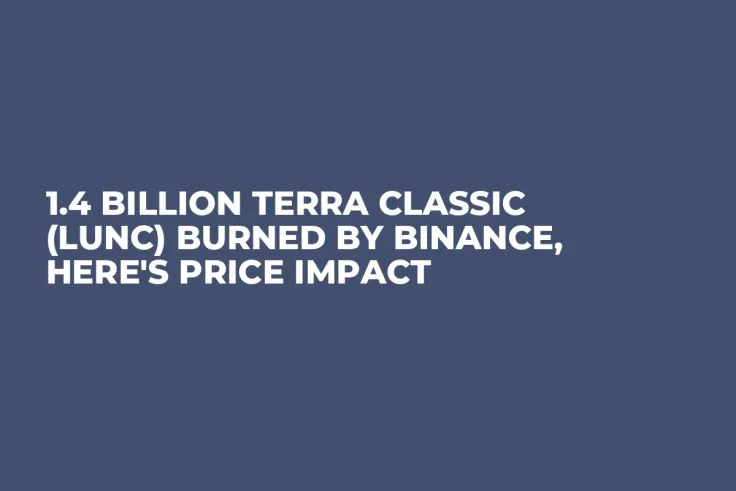
Disclaimer: The opinions expressed by our writers are their own and do not represent the views of U.Today. The financial and market information provided on U.Today is intended for informational purposes only. U.Today is not liable for any financial losses incurred while trading cryptocurrencies. Conduct your own research by contacting financial experts before making any investment decisions. We believe that all content is accurate as of the date of publication, but certain offers mentioned may no longer be available.
As indicated in a recent update, Binance burned a whopping 1.4 billion LUNC in its latest batch of burns.
On Aug. 1, top crypto exchange Binance burned its 12th batch of LUNC tokens to reiterate its support for the Terra Classic ecosystem.
This most recent burn resulted in the permanent elimination of nearly 1.41 billion LUNC from circulation in a single transaction. As a result, the transaction lowered Terra Classic's total supply to less than 6.84 trillion.
According to the latest update, the exchange burned 1,412,760,563 LUNC tokens in the most recent burn event.
This amount burned represents 50% of Binance's trading fees on LUNC spot and margin trading pairs accrued between June 30 and July 30.
The overall trading fee throughout this period was 121,850.96 USDT, according to the updated announcement. The exchange also stated that the next LUNC burn event would take place exactly one month later, on Sept. 2.
The leading exchange destroyed 2.6 billion LUNC tokens in its 11th burn campaign in July, a noteworthy move.
That said, the Terra Classic community continues to be hopeful that these frequent burns and the planned USTC repeg might aid LUNC's price in the long run; it is currently unaffected.
LUNC is now trading at about $0.00008, up from less than $0.00005 following its May collapse but still far below its all-time high of roughly $0.000018 earlier this year.
At the time of writing, LUNC has risen 1.47% in the previous 24 hours to $0.00008055.
Late last month, the Terra Classic community approved a significant proposal aimed at improving governance and decentralization during the transition to the Commonwealth Forum.


 Vladislav Sopov
Vladislav Sopov Dan Burgin
Dan Burgin